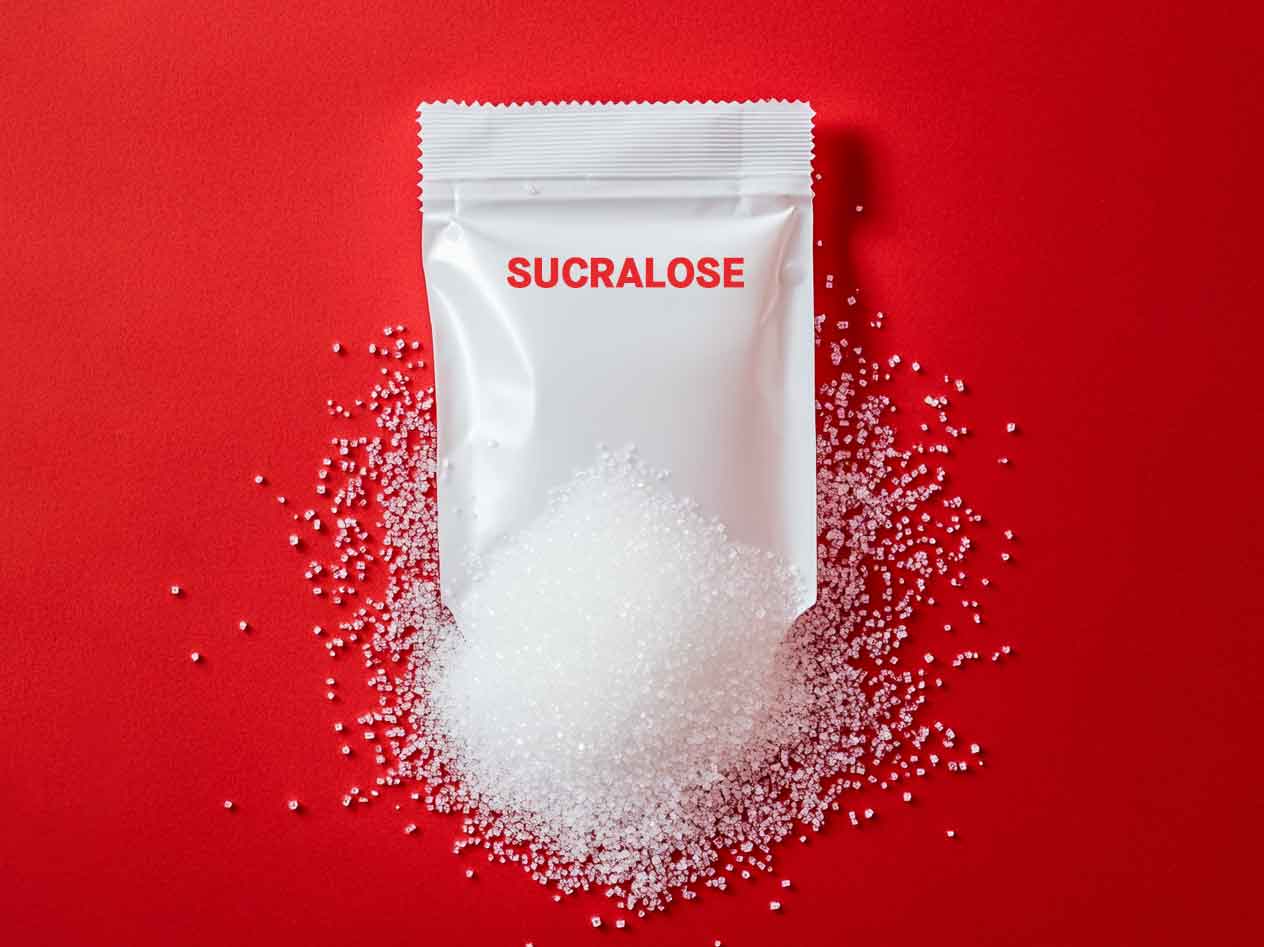New Study Suggests Chemical Formed when Consuming Sucralose is Genotoxic
Table of contents:
At Genexa, we define clean medicine as medicine with effective active ingredients to address your symptoms, without any artificial inactive ingredients or common allergens. So why choose clean medicine? Why do we leave out the artificial fillers?
Let’s take the popular artificial sweetener sucralose. Sucralose is made through a process involving sucrose, which is regular table sugar, but sucralose itself is not sugar. Instead, sucralose is a zero-calorie artificial sweetener used to add sweetness to foods, beverages, and medicines without adding calories or carbohydrates, and because of this, on the surface-level, it is seen as a healthy alternative to sugar.
The zero-calorie artificial sweetener known as SPLENDA® is an example of a retail sweetener that makes use of sucralose, and private label and brand-named products often use sucralose as well. Chewing gum, dairy products, syrups, and canned fruits are just a few food products that often incorporate sucralose for sweetness. If you look at the ingredients in your OTC medicines (particularly for children), you will most likely find sucralose on there as well.
While the FDA has made the determination that consuming sucralose is safe, according to a new study published by the Journal of Toxicology and Environmental Health, a chemical that is formed when we consume sucralose, called sucralose-6-acetate, is genotoxic. This means it breaks apart the DNA in certain chromosomes. The researchers also found that trace amounts of sucralose-6-acetate can be found in off-the-shelf sucralose, even before it is consumed and metabolized. These findings could be viewed as raising questions about the role sucralose has in impacting our health.
“To put this in context, the European Food Safety Authority has a threshold of toxicological concern for all genotoxic substances of 0.15 micrograms per person per day,” says Susan Schiffman, corresponding author of the study and an adjunct professor in the joint department of biomedical engineering at North Carolina State University and the University of North Carolina at Chapel Hill. “Our work suggests that the trace amounts of sucralose-6-acetate in a single, daily sucralose-sweetened drink exceed that threshold. And that’s not even accounting for the amount of sucralose-6-acetate produced as metabolites after people consume sucralose.”
We all know medicine is easier to stomach when the taste is bearable. To achieve this, Genexa uses organic agave syrup. This ingredient is derived from clean sources (no artificial sweeteners!). While we are still learning more about the long-term effects sucralose has on our health, you and your family have a choice when it comes to what’s in your medicine.
Sources
Shipman, M. (2023, May 31). Chemical Found in Common Sweetener Damages DNA. NC State University News. https://news.ncsu.edu/2023/05/genotoxic-chemical-in-sweetener/
Susan S. Schiffman, Elizabeth H. Scholl, Terrence S. Furey & H. Troy Nagle (2023) Toxicological and pharmacokinetic properties of sucralose-6-acetate and its parent sucralose: in vitro screening assays, Journal of Toxicology and Environmental Health, Part B, DOI: 10.1080/10937404.2023.2213903






